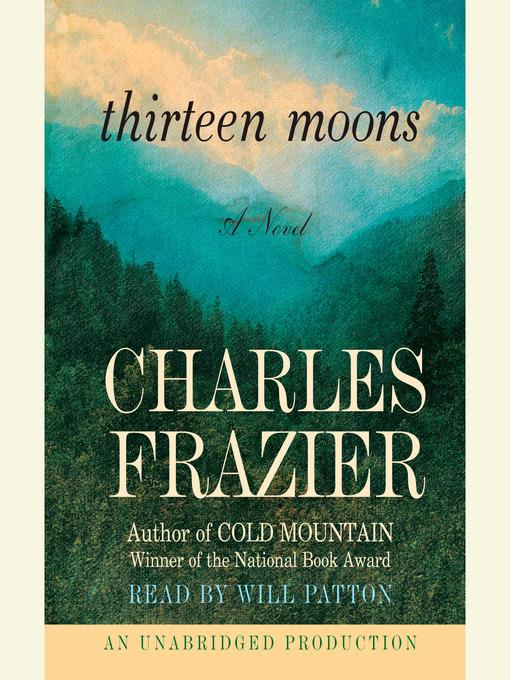
Thirteen Moons
A Novel
کتاب های مرتبط
- اطلاعات
- نقد و بررسی
- دیدگاه کاربران
نقد و بررسی

Charles Frazier's combination of poetic prose and cracker-barrel plainness is tailor-made for Will Patton's familiar folksy voice. Patton plunges listeners into the life of frontiersman Will Cooper, the aged, cantankerous narrator. Patton shines as Cooper reflects on the natural world and somewhat reluctantly tells the story of his life from bound-boy to lawyer, from senator to white Indian chief experiencing the demise of the Cherokee Nation. Frazier's period diction and sense of place are uncanny, but stock characters and his romanticized vision become obstacles. Happily, Patton avoids falling into the "bad" soldier/"good" Indian stereotype. His inflections create subtlety and human dimension on both sides. The book is good. Will Patton's performance is better. S.J.H. (c) AudioFile 2007, Portland, Maine

Starred review from August 28, 2006
When Frazier's debut Cold Mountain
blossomed into a National Book Award–winning bestseller with four million copies in print, expectations for the follow-up rose almost immediately. A decade later, the good news is that Frazier's storytelling prowess doesn't falter in this sophomore effort, a bountiful literary panorama again set primarily in North Carolina's Great Smoky Mountains. The story takes place mostly before the Civil War this time, and it is epic in scope. With pristine prose that's often wry, Frazier brings a rough-and-tumble pioneer past magnificently to life, indicts America with painful bluntness for the betrayal of its native people and recounts a romance rife with sadness.
In a departure from Cold Mountain
's Inman, Will Cooper narrates his own story in retrospect, beginning with his days as an orphaned, literate "bound boy" who is dispatched to run a musty trading post at the edge of the Cherokee Nation. Nearly nine mesmerizing decades later, Will is an eccentric elder of great accomplishments and gargantuan failures, perched cantankerously on his front porch taking potshots at passenger trains rumbling across his property (he owns "quite a few" shares of the railroad). Over the years, Will—modeled very loosely, Frazier acknowledges, on real-life frontiersman William Holland Thomas—becomes a prosperous merchant, a self-taught lawyer and a state senator; he's adopted by a Cherokee elder and later leads the clan as a white Indian chief; he bears terrible witness to the 1838–1839 Trail of Tears; a quarter-century later, he goes to battle for the Confederacy as a self-anointed colonel, leading a mostly Indian force with a "legion of lawyers and bookkeepers and shop clerks" as officers; as time passes, his life intersects with such figures as Davy Crockett, Sen. John C. Calhoun and President Andrew Jackson.
After the Civil War, Will fritters away a fortune through wanderlust, neglect and unquenched longing for his one true love, Claire, a girl he won in a card game when they were both 12, wooed for two erotic summers in his teen years and found again several decades later. In the novel's wistful coda, recalling Claire's voice inflicts "flesh wounds of memory, painful but inconclusive"—a voice that an uncertain old Will hears in the static hiss when he answers his newfangled phone in the book's opening pages. The history that Frazier hauntingly unwinds through Will is as melodic as it is melancholy, but the sublime love story is the narrative's true heart.

























دیدگاه کاربران